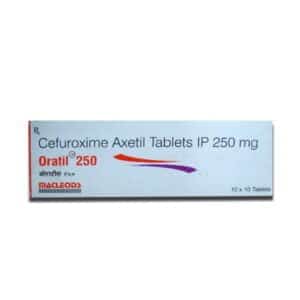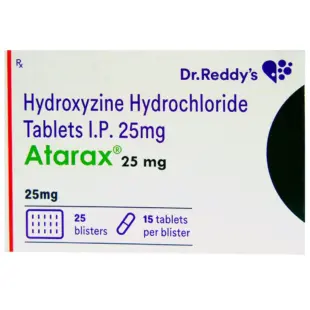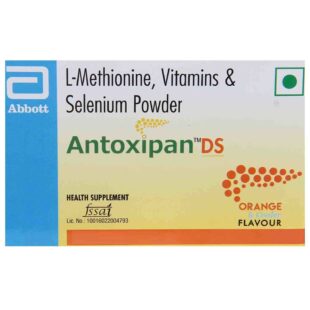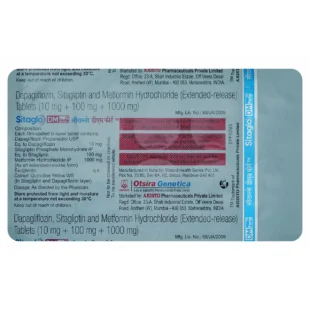- Your cart is empty
- Continue Shopping
Oratil 250mg Tablet
Oratil 250mg Tablet is a prescription antibiotic used to treat a wide range of bacterial infections. It contains Doxycycline, a broad-spectrum tetracycline antibiotic that works by inhibiting bacterial protein synthesis, effectively stopping bacterial growth and preventing the spread of infection. Oratil 250mg Tablet is commonly prescribed for respiratory tract infections, urinary tract infections, skin and soft tissue infections, certain sexually transmitted infections, and for the prevention of malaria in endemic areas. It is suitable for adult patients and is taken orally as directed by a healthcare professional. Proper use under medical supervision ensures effective treatment while minimizing the risk of side effects and antibiotic resistance.
Benefits
-
Treats a wide range of bacterial infections
-
Effective for respiratory tract infections
-
Supports management of urinary tract infections
-
Useful in skin and soft tissue infections
-
Helps treat certain sexually transmitted infections
-
Can prevent malaria in endemic regions
-
Fast-acting and effective antibiotic therapy
-
Helps stop the spread of bacterial infections
-
Reduces symptoms such as fever, pain, and inflammation
-
Supports faster recovery
-
Suitable for adult patients
-
Convenient oral administration
-
Enhances adherence to treatment
-
Prevents complications from untreated infections
-
Effective for both acute and chronic bacterial infections
Side Effects
-
Nausea or vomiting
-
Diarrhea or stomach upset
-
Loss of appetite
-
Headache
-
Dizziness
-
Photosensitivity (increased sensitivity to sunlight)
-
Skin rash or itching
-
Mouth ulcers or sore throat
-
Rare allergic reactions
-
Tooth or tongue discoloration with prolonged use
-
Rare liver function changes
-
Mild fatigue
-
Abdominal cramps
-
Severe diarrhea in rare cases indicating Clostridium difficile infection
-
Metallic taste occasionally
How to Use
-
Take as prescribed by your doctor
-
Swallow the tablet with a full glass of water
-
Can be taken with or after food to reduce stomach irritation
-
Take at the same time each day for consistency
-
Complete the full prescribed course even if symptoms improve
-
Avoid skipping doses or doubling doses
-
Monitor for signs of allergic reactions
-
Store in a cool, dry place away from sunlight
-
Keep out of reach of children
-
Report unusual symptoms promptly
-
Avoid self-medicating with other antibiotics
-
Maintain proper hydration during treatment
How it Works
-
Doxycycline inhibits bacterial protein synthesis
-
Prevents bacterial growth and replication
-
Targets a broad spectrum of bacteria
-
Reduces infection-related inflammation
-
Supports immune system in clearing infections
-
Helps prevent complications from untreated infections
-
Works effectively against Gram-positive and Gram-negative bacteria
-
Provides symptomatic relief when used correctly
-
Can be used for prevention of malaria in endemic areas
-
Suitable for both acute and chronic infections
What to Avoid
-
Avoid taking with dairy products or antacids close to dosing time
-
Avoid skipping doses or changing dose without doctor’s advice
-
Avoid prolonged sun exposure or tanning beds
-
Avoid self-medication with other antibiotics
-
Avoid alcohol during treatment to reduce stomach irritation
-
Avoid prolonged use without supervision
-
Avoid sharing medication with others
-
Avoid abrupt discontinuation even if symptoms improve
-
Avoid expired medication
-
Avoid excessive caffeine intake
-
Avoid taking on an empty stomach if prone to stomach upset
-
Avoid ignoring signs of severe allergic reactions
-
Avoid combining with other tetracyclines
-
Avoid exposure to unnecessary infections during treatment
-
Avoid long-term unsupervised use
Safety Advice
-
Use only under medical supervision
-
Pregnant or breastfeeding women should consult a doctor
-
Monitor for signs of severe allergic reaction
-
Watch for gastrointestinal disturbances or severe diarrhea
-
Avoid use in children under age eight unless prescribed
-
Follow prescribed dosage strictly
-
Store medicine safely away from children
-
Complete full course to prevent antibiotic resistance
-
Report persistent nausea, rash, or mouth sores
-
Avoid prolonged sun exposure without protection
-
Seek medical attention for severe side effects
-
Maintain hydration and a healthy diet during treatment
-
Adhere to follow-up appointments if prescribed
-
Monitor liver or kidney function if on long-term therapy
-
Do not combine with other antibiotics without consulting a doctor
Precautions
-
Inform doctor about liver, kidney, or heart conditions
-
Report any known allergies to antibiotics
-
Avoid use if pregnant or breastfeeding unless prescribed
-
Protect skin from sunlight due to photosensitivity
-
Take medication exactly as prescribed
-
Avoid self-adjusting doses
-
Complete full treatment course
-
Consult doctor before starting new medications
-
Report persistent gastrointestinal or allergic symptoms
-
Store in a cool, dry place away from sunlight
-
Avoid exposure to infections while on treatment
-
Maintain routine health monitoring during long-term therapy
-
Follow lifestyle advice for faster recovery
-
Avoid sharing medication with others
-
Keep track of dosing schedule for adherence
Vendor Information
- Address:
- No ratings found yet!














Reviews
There are no reviews yet.